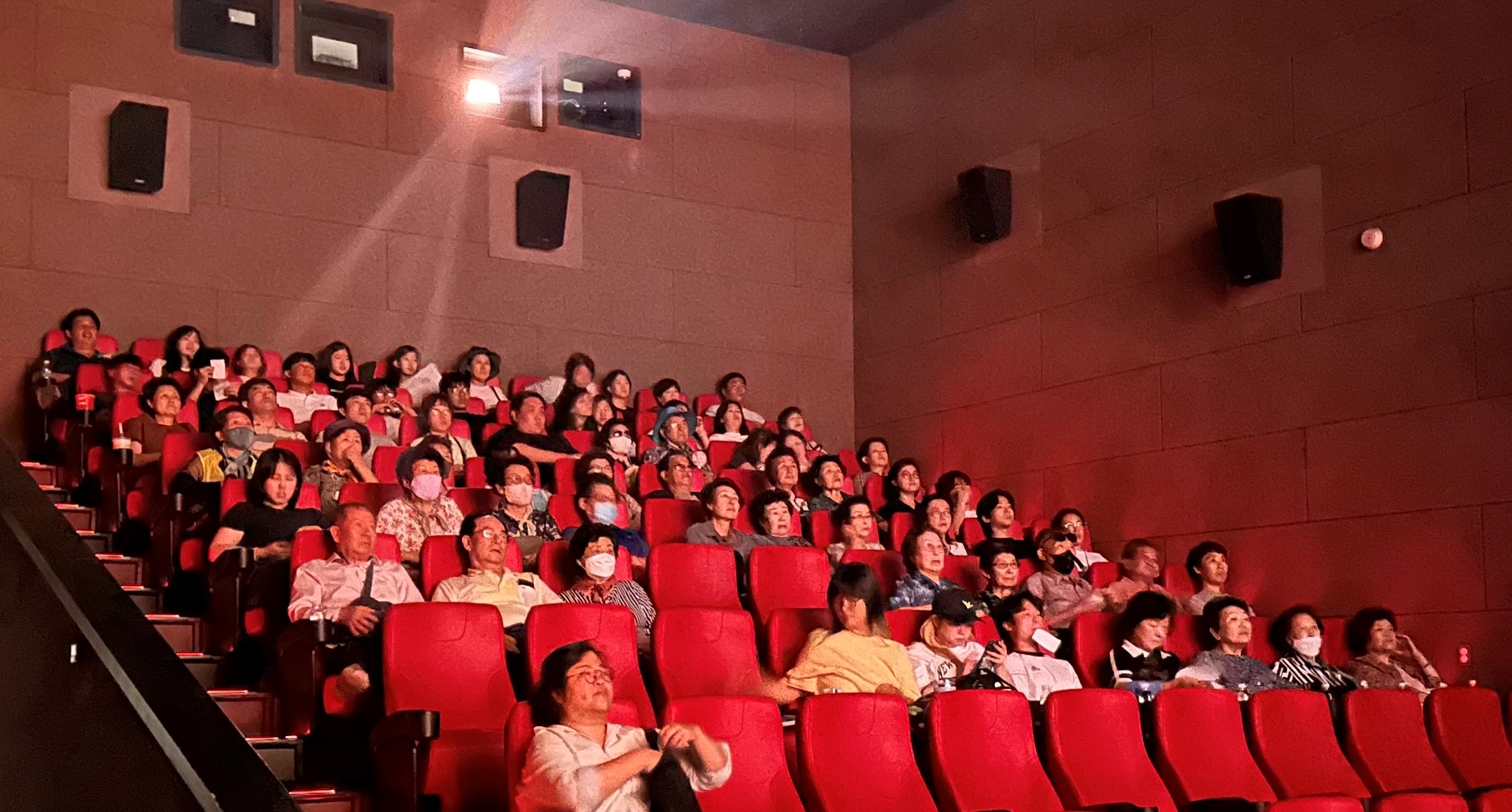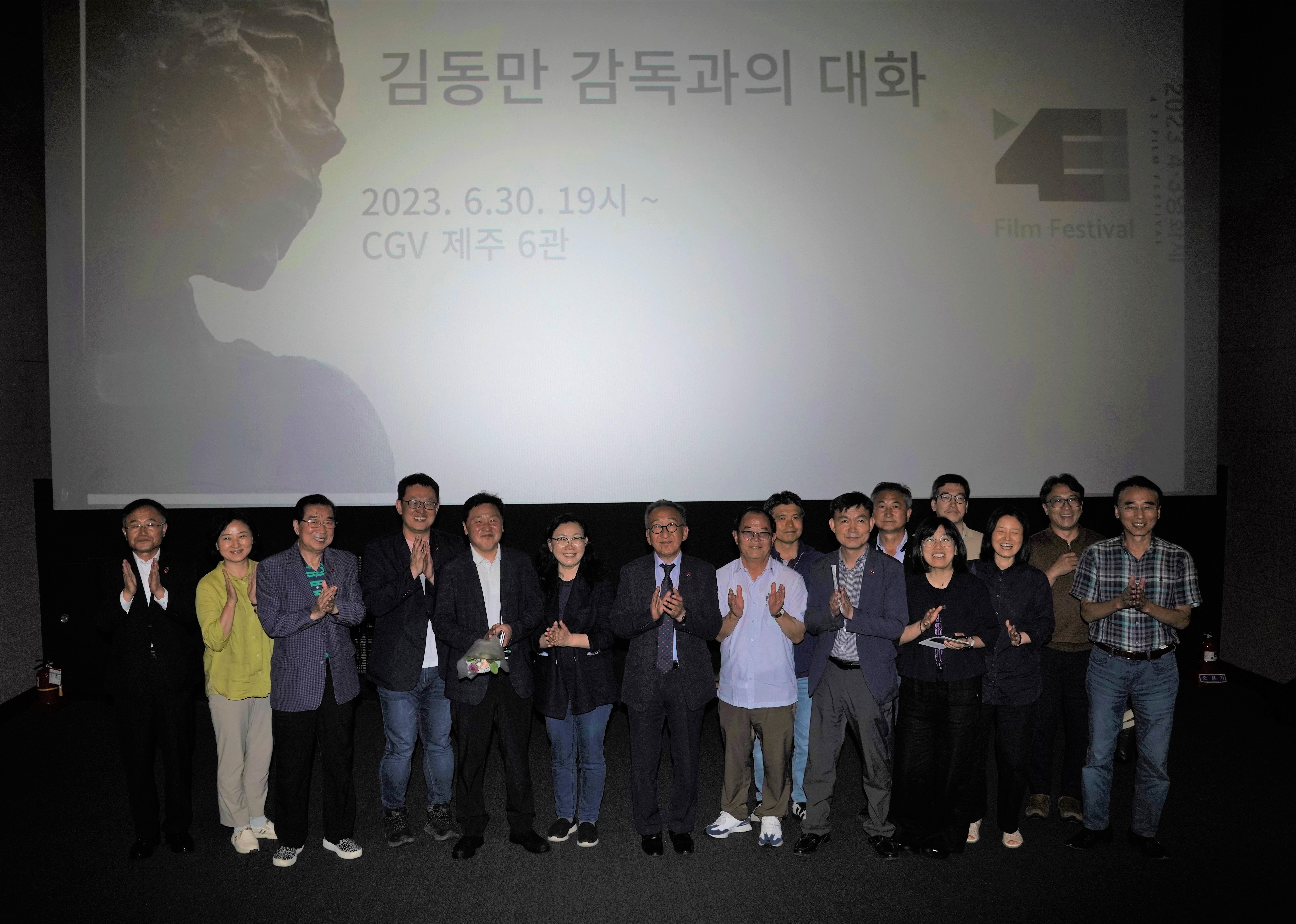News Update – The 1st 4‧3 Film Festival
The 1st 4‧3 Film Festival
Messages of memory, resistance, and peace imprinted in films
 The 2023 Jeju 4·3 Film Festival kicked off at CGV Jeju’s Screening Room 6 on June 30. The opening films included “Jeju 4·3, outcry that never sleeps” (1995) and “Last words” (1998) by director Kim Dong-man who have worked to reveal the truth about Jeju 4·3 through films. The screening was followed by a talk with the director.
The 2023 Jeju 4·3 Film Festival kicked off at CGV Jeju’s Screening Room 6 on June 30. The opening films included “Jeju 4·3, outcry that never sleeps” (1995) and “Last words” (1998) by director Kim Dong-man who have worked to reveal the truth about Jeju 4·3 through films. The screening was followed by a talk with the director.
The following day, Kim’s documentary films were paired with “The Wind That Shakes the Barley” (2006, Ken Loach), which depicts the Irish resistance against the British in the 1920s.
The opening ceremony was attended by a diverse audience ranging from Jeju 4·3 victims to university students who commemorated the start of the Jeju 4·3 Film Festival.
“For the past 75 years, films on Jeju 4·3 have served as a medium of resistance that desperately records memories and a democratic forum for gathering wisdom to realize peace and human rights,” said Koh Hee-bum, president of the Jeju 4·3 Peace Foundation. He also called for more attention to the inaugural Jeju 4·3 Film Festival, expecting the visitors to happily enjoy the sacrament of video language, where yesterday’s memories, today’s achievements, and tomorrow’s hopes are alive and well.
 Sponsored by the Jeju International City Development Center (President: Yang Young-chul), the festival screened a total of 19 films under three themes: Documenting Memories, Peace and Human Rights, and Solidarity and the Future. Videos created by young artists, including the winners of the Jeju 4·3 and Peace Video Competition, were also introduced as preview videos.
Sponsored by the Jeju International City Development Center (President: Yang Young-chul), the festival screened a total of 19 films under three themes: Documenting Memories, Peace and Human Rights, and Solidarity and the Future. Videos created by young artists, including the winners of the Jeju 4·3 and Peace Video Competition, were also introduced as preview videos.
The festival ran for six months, from June 30 to Nov. 25, meeting with audiences on the last Friday and Saturday of each month. In addition to the movie screenings, the festival also arranged events where audiences could meet with directors, join special talks, and more.
In July, the festival highlighted stories of state violence in Jeju, Gwangju, and Indonesia, screening “Act of Killing” (2014, Joshua Oppenheimer) on the 1965 Indonesian Massacre, and short films on Jeju 4·3, including “The Land Never Grows Old” (2022, Kim Ji-hye) and “May·Jeju·Day” (2022, Kang Hee-jin), as well as “Kim-gun” (2019, Kang Sang-woo) on the truth about the May 18 Gwangju Democratization Movement. On July 29, all seats were sold out by advance reservation only.
In August, the festival screened “Dear Pyongyang,” “Goodbye Pyongyang,” and “Soup and Ideology,” a trilogy of family documentaries by second-generation Korean-American director Yang Yonghi.
The screening schedule for each month was announced on the website of the Jeju 4·3 Peace Foundation and its social media channels. Admission was completely free, and special merchandise (souvenirs) were offered on-site for pre-registered attendees.
